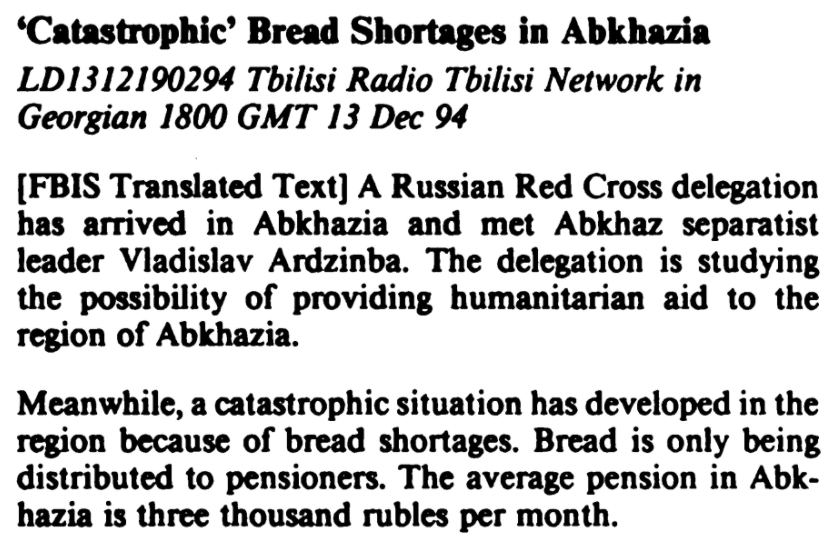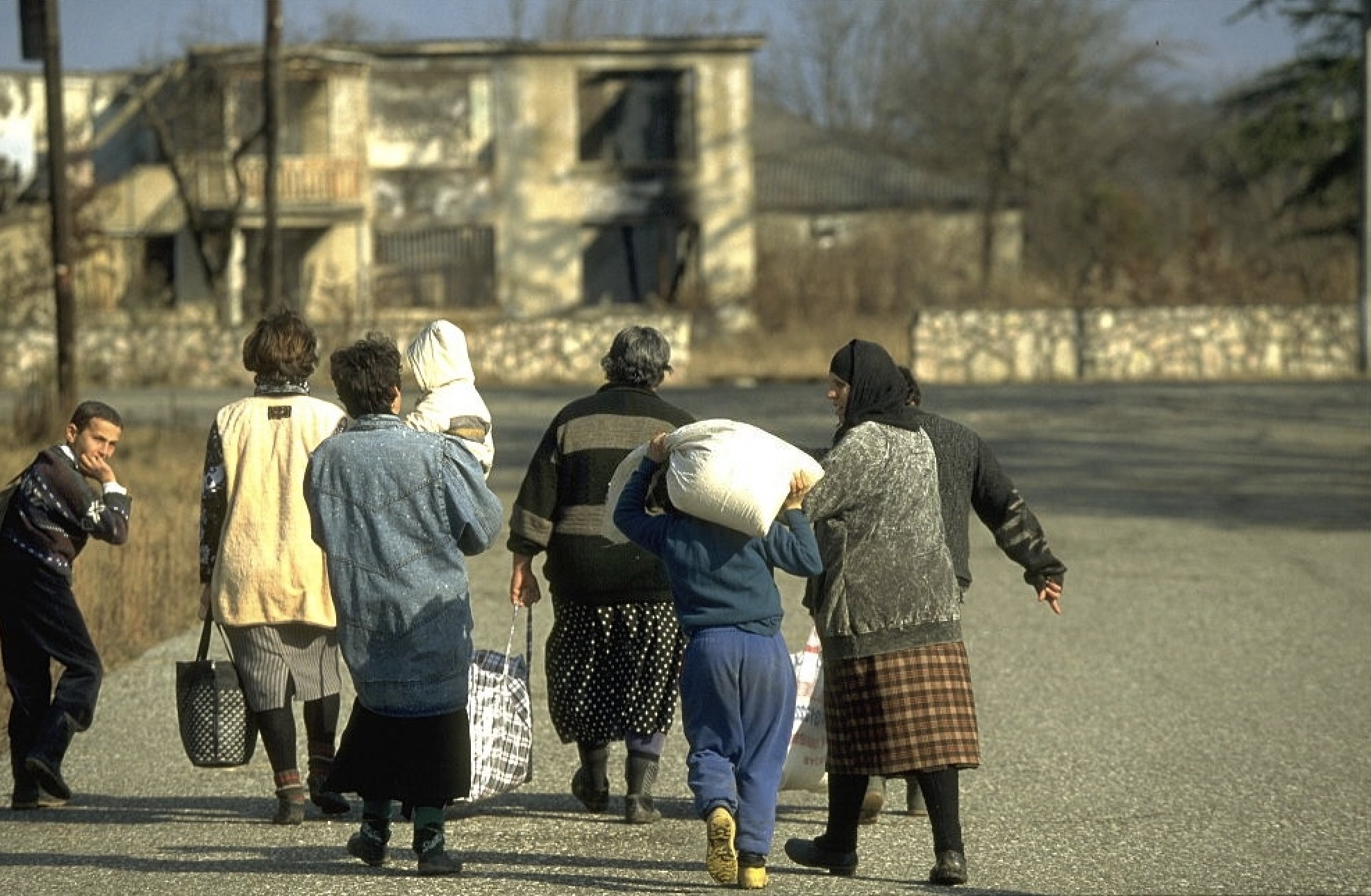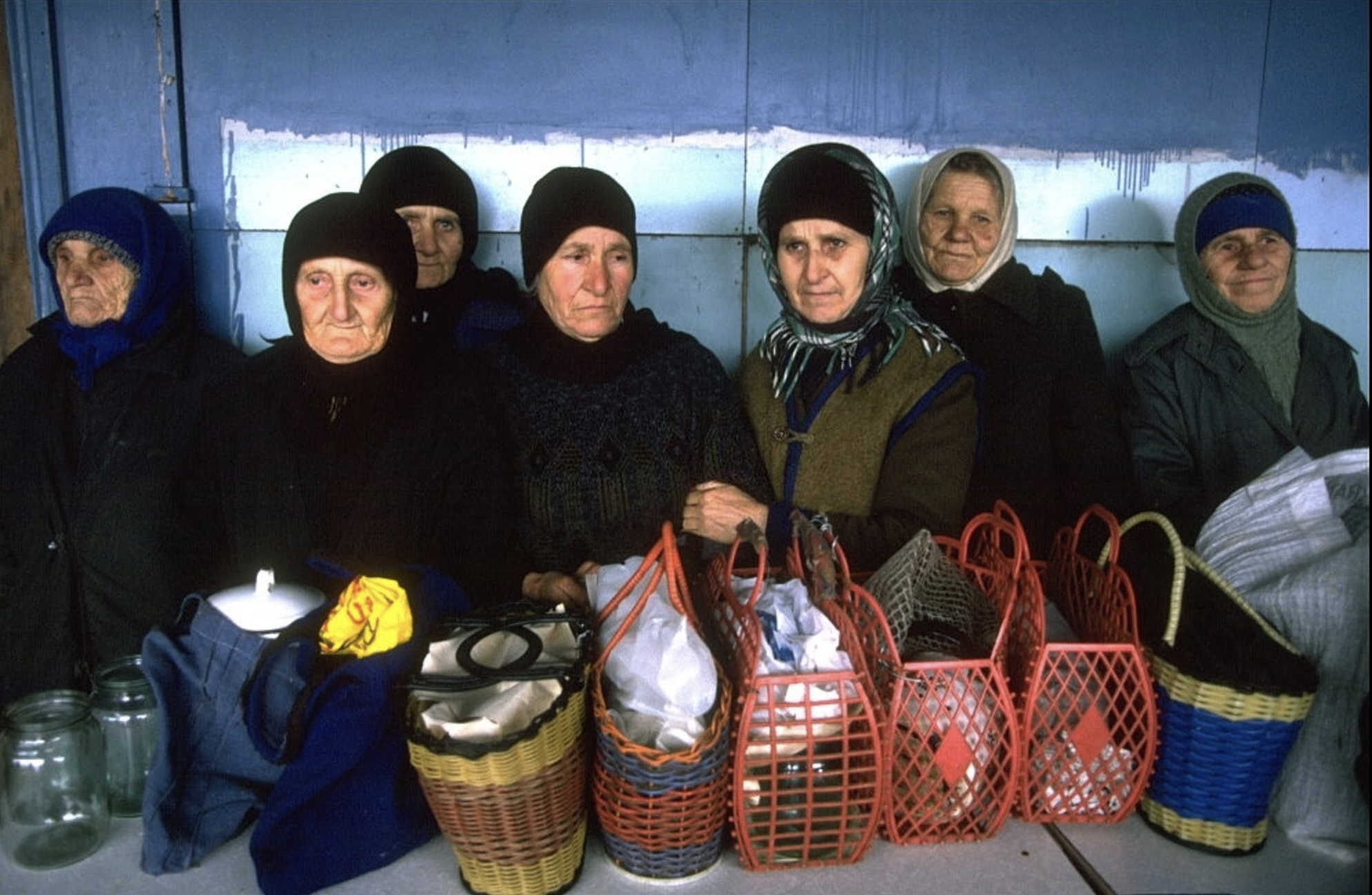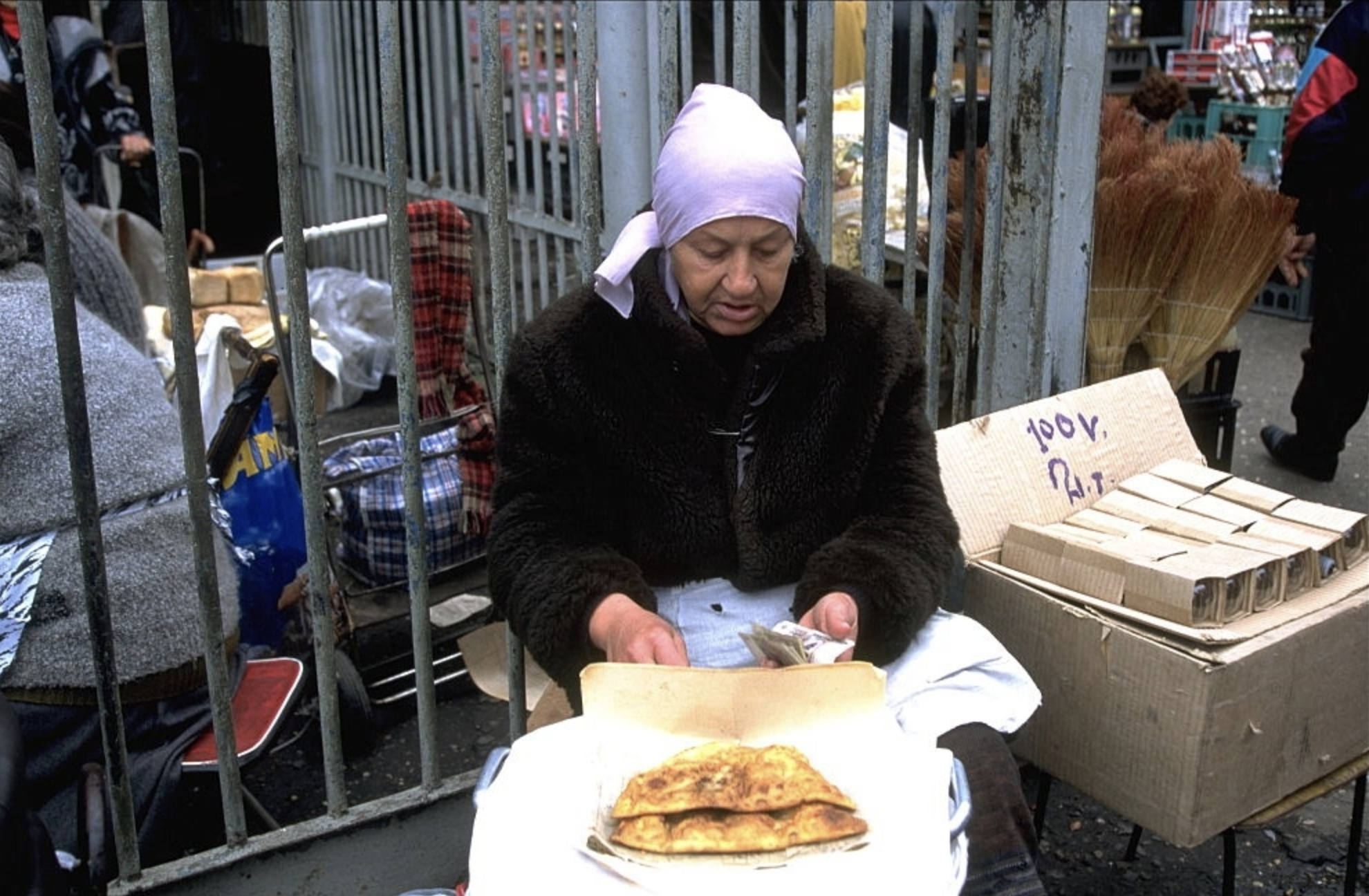The Blockade of Abkhazia and the Resilience of Its Women

During the blockade, women crossed borders to sell goods and earn money for essentials.
After the Georgian-Abkhazian war of 1992–93, Abkhazia faced a challenging period characterised by severe economic and political blockades. Throughout the 1990s, Russia’s policies under Boris Yeltsin were by no means pro-Abkhazian, particularly during the tenure of Foreign Minister Andrei Kozyrev, a protégé of Eduard Shevardnadze. The Russian executive branch, heavily influenced by Shevardnadze’s efforts to present Georgia as a dependable ally, consistently favoured Georgia in both its actions and rhetoric.
Following the war, Abkhazia was subjected to a severe blockade at Georgia’s insistence. Yeltsin’s administration, in collaboration with Georgia, imposed sanctions through the Commonwealth of Independent States (CIS). The majority of CIS leaders supported these measures, with only Belarus and Turkmenistan abstaining. Their abstention reflected the constitutional neutrality of their nations, which prohibited participation in such actions.
The Struggles of Everyday Life
The blockade imposed debilitating restrictions on Abkhazia. Abkhazian men aged 16 to 65 were prohibited from legally crossing the Russian-Abkhazian border along the River Psou. The list of goods allowed into and out of the blockaded republic was so limited that it could fit on a scrap of paper. Even essential medical supplies, such as antibiotics, were banned, crippling healthcare institutions and compounding the struggles faced by ordinary citizens.

During this time, the burden of sustaining families and communities fell disproportionately on Abkhazian women. With men restricted from crossing borders, women assumed the role of providers and caretakers. Many vividly recall women crossing the border with wheelbarrows filled with fruits and vegetables, which they sold to earn money for basic necessities such as flour and sugar. These women became symbols of resilience, ensuring their families’ survival amidst the dire circumstances.
+ The Blockade of Abkhazia: FBIS Archives and Photos by Bernard Bisson
+ Questioning The Embargo on Abkhazia: Turkey's Role in Integration Into The Black Sea Region, by Burcu Gültekin Punsmann
+ Caucasus Women and Conflict Prevention, by Natella Akaba
Escalation and Protest
By 1996, tensions surrounding the blockade reached a boiling point. In March, Russian border guards attempted to prevent a Turkish ship from entering Sukhum port, citing the CIS-imposed blockade from earlier that year. This incident prompted accusations from Abkhazian leaders, who condemned Russia for violating human rights and attempting to provoke further conflict in the region. The blockade sparked widespread protests in Abkhazia, with demonstrators denouncing its devastating effects on the republic’s economy and daily life.

Photo by Bernard Bisson (January 1998) - The 'Action Against Hunger' NGO in Abkhazia.
The Gradual Lifting of the Blockade
The blockade persisted through the remainder of Yeltsin’s presidency but began to ease with the ascension of Vladimir Putin. While the lifting of the sanctions was not immediate, Abkhazian society noted a gradual reduction in restrictions. Eventually, the blockade was officially lifted, a development that significantly reshaped Abkhazia’s perception of Russia. The change in policy marked a turning point in Abkhaz-Russian relations, with many Abkhazians viewing it as a gesture of solidarity and support.

Photo by Bernard Bisson (January 1998) - The 'Action Against Hunger' NGO in Abkhazia.
The Role of Women in Abkhazia’s Resilience
The resilience of Abkhazian women during the blockade remains a powerful testament to their strength and determination. In the face of economic hardship, isolation, and international sanctions, they assumed the roles of providers, caretakers, and community leaders. Their efforts ensured not only the survival of their families but also the preservation of Abkhazian identity and culture during one of the most challenging periods in the republic’s history.

Photo by Bernard Bisson (January 1998) - The 'Action Against Hunger' NGO in Abkhazia.
Today, the experiences of these women serve as a reminder of Abkhazia’s ability to endure and emerge stronger from adversity, highlighting the vital role of collective resilience in overcoming even the harshest challenges.